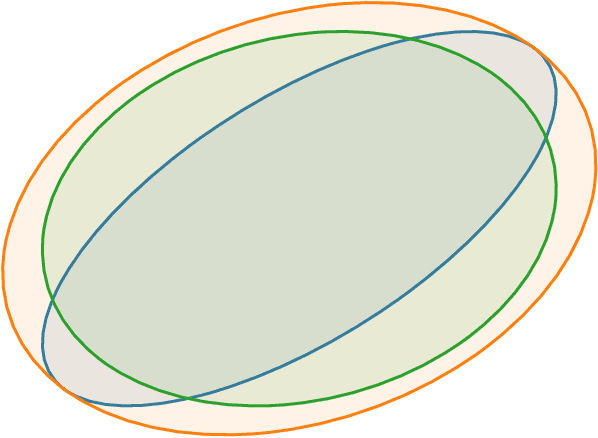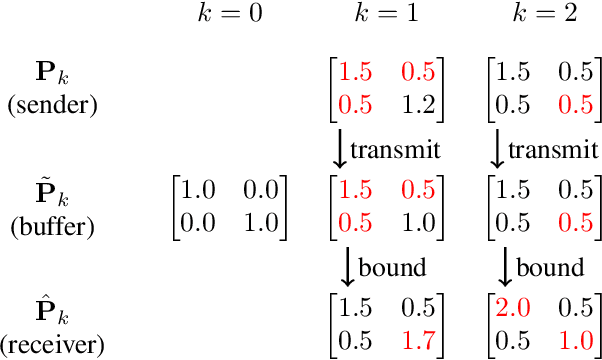An Event-Based Approach for the Conservative Compression of Covariance Matrices
Paper and Code
Mar 09, 2024



This work introduces a flexible and versatile method for the data-efficient yet conservative transmission of covariance matrices, where a matrix element is only transmitted if a so-called triggering condition is satisfied for the element. Here, triggering conditions can be parametrized on a per-element basis, applied simultaneously to yield combined triggering conditions or applied only to certain subsets of elements. This allows, e.g., to specify transmission accuracies for individual elements or to constrain the bandwidth available for the transmission of subsets of elements. Additionally, a methodology for learning triggering condition parameters from an application-specific dataset is presented. The performance of the proposed approach is quantitatively assessed in terms of data reduction and conservativeness using estimate data derived from real-world vehicle trajectories from the InD-dataset, demonstrating substantial data reduction ratios with minimal over-conservativeness. The feasibility of learning triggering condition parameters is demonstrated.
 Add to Chrome
Add to Chrome Add to Firefox
Add to Firefox Add to Edge
Add to Edge